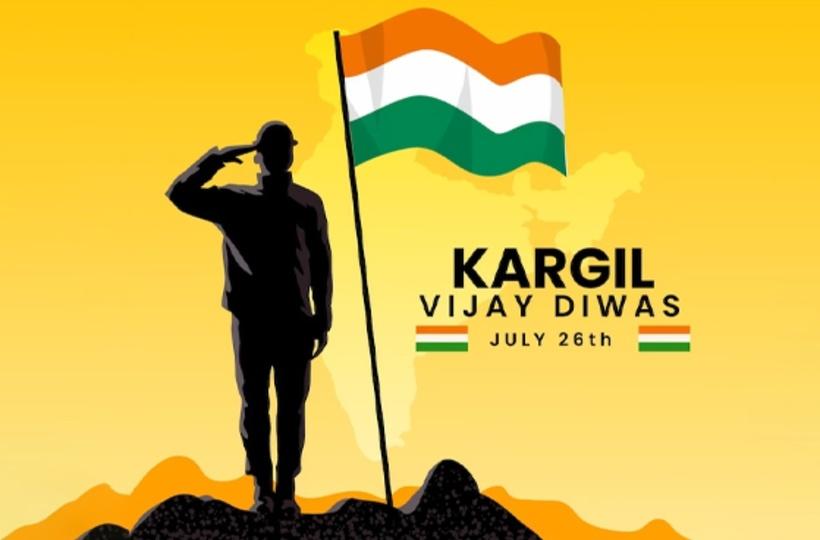Kargil Vijay Diwas: A Case Study
Introduction
Kargil Vijay Diwas, celebrated on July 26th every year, marks the victory of the Indian armed forces over Pakistan in the Kargil War of 1999. This day honours the bravery, courage, and sacrifice of our soldiers who fought to protect the nation’s integrity. The Kargil War, also known as Operation Vijay, was a significant conflict between India and Pakistan that took place in the Kargil district of Jammu and Kashmir. This case study delves into the background, events, and aftermath of the Kargil War, highlighting the strategic importance and the heroism displayed by Indian soldiers.
Background
The conflict began in May 1999, when Pakistani soldiers and militants infiltrated the Indian side of the Line of Control (LoC) in the Kargil sector. The infiltrators occupied strategic heights, posing a severe threat to the national highway connecting Srinagar to Leh. The intrusion was part of a larger plan to sever the link between Kashmir and Ladakh and to internationalize the Kashmir issue.
Timeline of Events
- May 3, 1999: Local shepherds first reported unusual activity in the Kargil region, leading to initial patrols and reconnaissance by Indian forces.
- May 9, 1999: Pakistani artillery fire targeted the Indian supply route, raising alarm.
- May 26, 1999: India launched Operation Vijay, mobilizing troops and air support to reclaim the occupied territories.
- June 1999: Intense fighting ensued as Indian troops advanced towards the intruders. The Indian Air Force launched Operation Safed Sagar to provide aerial support.
- July 4, 1999: The strategic Tiger Hill was recaptured by Indian forces after a fierce battle.
- July 14, 1999: Then Prime Minister Atal Bihari Vajpayee declared Operation Vijay a success.
- July 26, 1999: Kargil Vijay Diwas was declared, marking the official end of the conflict with India regaining control over all occupied territories.
Heroic Acts and Key Battles
- Battle of Tololing: One of the first and fiercest battles, the capture of Tololing was crucial for the Indian forces. The success of this battle paved the way for further operations.
- Capture of Tiger Hill: The recapture of Tiger Hill was a turning point in the war. The operation showcased the exceptional bravery of soldiers like Captain Vikram Batra, who famously declared, “Yeh Dil Maange More!”
- Operation Safed Sagar: The Indian Air Force played a vital role in providing logistical and tactical support. Precision strikes on enemy positions disrupted their supply lines and weakened their stronghold.
Strategic Importance
The Kargil War highlighted several strategic aspects:
- Geographical Significance: The conflict underscored the importance of high-altitude warfare. The challenging terrain of the Kargil sector posed significant logistical and operational challenges.
- Intelligence and Surveillance: The war emphasized the need for robust intelligence and surveillance mechanisms to prevent future infiltrations.
- International Diplomacy: The conflict brought international attention to the Kashmir issue, with India successfully garnering global support for its stance against cross-border terrorism.
Aftermath and Impact
The Kargil War had far-reaching implications for India:
- Defence Reforms: The war led to significant reforms in India’s defence strategy, including the establishment of the Kargil Review Committee. The committee’s recommendations resulted in the modernization of the armed forces and improved border surveillance.
- National Unity: The war fostered a sense of national unity and pride. The collective effort of the armed forces and the civilian population highlighted India’s resolve to protect its sovereignty.
- Political Impact: The conflict influenced Indian politics, with the government emphasizing national security and defence preparedness in its policies.
Commemoration and Legacy
Kargil Vijay Diwas is celebrated across India with various events and tributes to the martyrs. Memorials like the Dras War Memorial stand as a testament to the bravery and sacrifice of Indian soldiers. Educational institutions, government bodies, and citizens participate in remembering the heroes who laid down their lives for the nation.
Conclusion
Kargil Vijay Diwas is not just a day of victory but a reminder of the unwavering spirit of the Indian armed forces. The Kargil War, with its strategic and emotional significance, remains etched in the collective memory of the nation. It serves as an inspiration for future generations to uphold the values of courage, dedication, and patriotism. As we commemorate this day, we honour the sacrifices of our soldiers and reaffirm our commitment to safeguarding the sovereignty of our nation.







